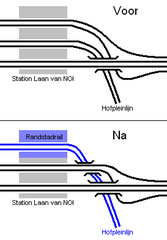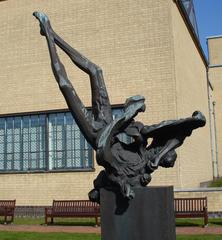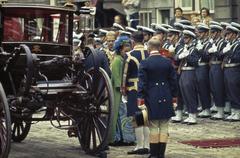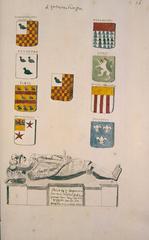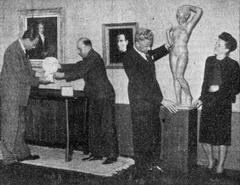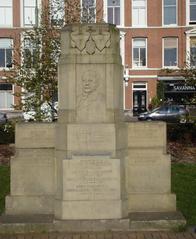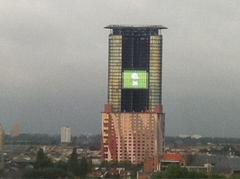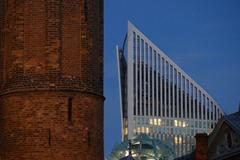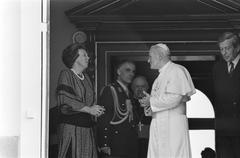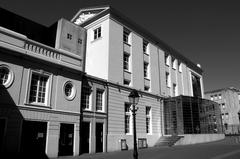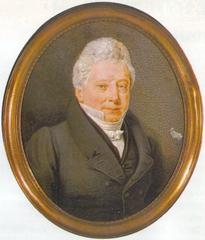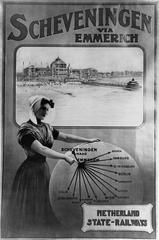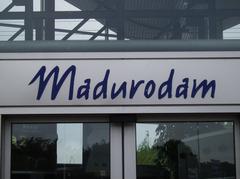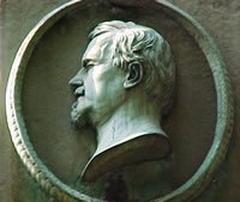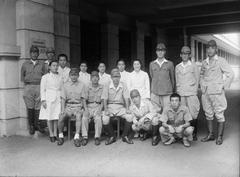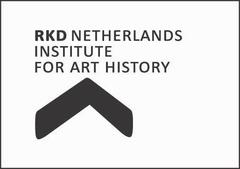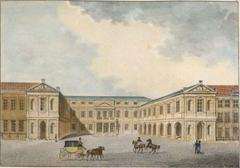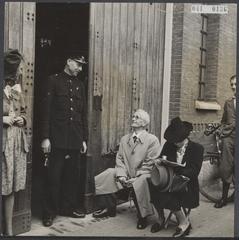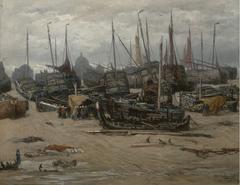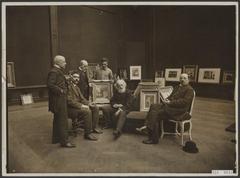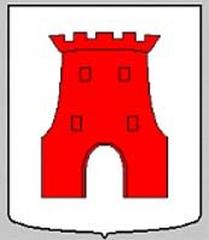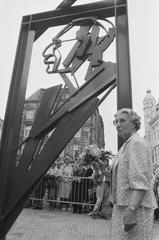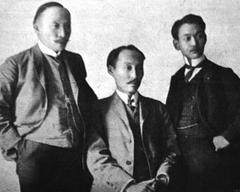
Embassy Of The People'S Republic Of China, The Hague
Visiting the Embassy of the People’s Republic of China in The Hague, Netherlands: Visiting Hours, Tickets, and Tips
Date: 03/07/2025
Introduction
The Embassy of the People’s Republic of China in The Hague is a cornerstone of Sino-Dutch relations, serving as both a diplomatic hub and a gateway for cultural exchange. Strategically located in The Hague—the “City of Peace”—the embassy manages diplomatic, economic, and consular affairs, while offering insight into centuries of shared history between China and the Netherlands (Wikipedia: China–Netherlands relations). Whether you are seeking consular services, cultural enrichment, or a deeper understanding of China’s role within the international community, this guide provides comprehensive information on visiting the embassy, including practical visitor tips, recent policy changes, and nearby attractions.
Table of Contents
- Early Sino-Dutch Relations and Historical Foundations
- Establishment of Diplomatic Relations
- Periods of Tension and Restoration
- Recent Developments and State Visits
- The Embassy’s Role in Bilateral Relations
- Practical Visitor Information
- Human Rights, Controversies, and Public Diplomacy
- The Embassy as a Cultural and Community Hub
- Embassy Structure and Services
- China’s Accession to the Hague Apostille Convention and Visa Policy Updates
- Cultural Etiquette and Security Protocols
- Frequently Asked Questions (FAQs)
- Summary and Final Recommendations
- References
Early Sino-Dutch Relations and Historical Foundations
Sino-Dutch relations trace back to the 17th century, with Dutch traders from the Verenigde Oostindische Compagnie (VOC) establishing trading posts in Canton and Taiwan. These early encounters, documented by figures like Johan Nieuhof, laid the foundation for centuries of commercial and cultural exchange (Wikipedia: China–Netherlands relations).
Establishment of Diplomatic Relations
Formal diplomatic ties between the People’s Republic of China and the Netherlands were established in November 1954, initially at the charge d’affaires level. The Netherlands became one of the first Western European nations to recognize the PRC, leading to the establishment of a full embassy in 1972 and deepening bilateral engagement.
Periods of Tension and Restoration
Challenges emerged in the early 1980s, notably due to Dutch military exports to Taiwan, which resulted in a temporary downgrading of diplomatic relations. Ties were restored in 1984 after the cessation of such exports, underlining the importance of the One China policy in bilateral affairs.
Recent Developments and State Visits
The 21st century has seen significant milestones, such as General Secretary Xi Jinping’s state visit to the Netherlands in 2014 (Wikipedia: China–Netherlands relations). However, contemporary issues such as maritime incidents and cybersecurity concerns underscore the complexity of modern Sino-Dutch relations.
The Embassy’s Role in Bilateral Relations
The embassy is pivotal in managing diplomatic, economic, and consular affairs, supporting the Chinese community, and fostering public diplomacy initiatives (The Diplomat: The Inner Workings of a Chinese Embassy). It serves not only as a venue for bilateral negotiations but also as a bridge for cultural and educational exchange.
Practical Visitor Information
Location and Accessibility
The embassy is located at Maanweg 174, 2516 AB, The Hague, Netherlands, in the Bezuidenhout district, near major international institutions like the International Court of Justice (Chinese Embassy The Hague Visiting Hours, Location, and Services). The building also houses the Chinese Visa Application Service Centre (CVASC).
- Public Transport: Well-served by tram and bus lines, with Den Haag Centraal Station nearby.
- Parking: No visitor parking at the embassy or CVASC; public transport is strongly recommended.
- Accessibility: The site is wheelchair-friendly, with elevators and accessible entrances.
Visiting Hours and Entry
- Operating Days: Monday to Friday (closed weekends and Chinese/Dutch public holidays)
- Applications: 09:00–15:00
- Payment/Collection: 09:00–16:00
- Entry: By appointment only, except during special public events. Bring valid ID and appointment confirmation.
Check the official CVASC schedule for holiday closures.
Special Events and Cultural Programs
The embassy periodically organizes events such as Chinese New Year celebrations, art exhibitions, and language workshops. These are announced on the embassy’s website and social media.
Nearby Attractions
Combine your embassy visit with trips to the Peace Palace, International Court of Justice, Kunstmuseum Den Haag, and other notable sites in The Hague’s diplomatic quarter (Netherlands Tourism: The Hague).
Human Rights, Controversies, and Public Diplomacy
The embassy addresses human rights concerns and public controversies through diplomatic engagement, cultural outreach, and media communication, aiming to foster mutual understanding and transparency with the Dutch public.
The Embassy as a Cultural and Community Hub
Beyond official functions, the embassy serves as a center for cultural exchange, supporting the Chinese diaspora and promoting Chinese language and heritage among Dutch citizens. Consular services include passport renewals, notarial acts, and emergency assistance (Wikipedia: The Hague).
Embassy Structure and Services
Departments include:
- Diplomatic Affairs: Bilateral relations and multilateral engagement
- Consular Services: Visa/passport processing, document legalization
- Cultural/Educational Exchange: Language, arts, and academic programs
- Economic/Trade Section: Investment, trade promotion, and business support
- CVASC: Handles most visa application procedures (CVASC info)
Facilities
- Waiting areas, restrooms, and an information desk are available.
- Language assistance in Mandarin, English, and Dutch.
China’s Accession to the Hague Apostille Convention and Visa Policy Updates
Apostille Convention
Since November 7, 2023, China’s membership in the Hague Apostille Convention has simplified document legalization. Dutch-origin public documents for use in China now only require a Dutch-issued apostille, no embassy legalization (Teach English Global).
Visa Policy Updates
- 30-Day Visa-Free Entry: As of June 2025, citizens from the Netherlands and other select countries can visit China visa-free for up to 30 days (China Discovery).
- 10-Day Visa-Free Transit: Dutch travelers transiting through China to a third country can enjoy up to 10 days visa-free in select cities (China Highlights).
- Hong Kong/Macau: Dutch citizens may visit for up to 90 days visa-free.
Other travelers must follow standard visa procedures via the CVASC.
Cultural Etiquette and Security Protocols
- Appointments: Required for most services; book via embassy appointment system.
- Dress Code: Smart casual or business attire is best.
- Conduct: Be formal and respectful; avoid sensitive political topics.
- Photography: Not permitted inside; seek permission for exterior shots.
- Security: All visitors undergo screening and must present valid ID.
For more etiquette tips, see Visiting the Chinese Embassy in The Hague: Hours, Appointments, and Cultural Etiquette.
Frequently Asked Questions (FAQs)
Q: How do I reach the embassy via public transport?
A: Use Den Haag Centraal Station and local trams/buses. The embassy is a short walk from stops on Maanweg.
Q: Do I need an appointment?
A: Yes, for most consular services. Special events may have different entry rules.
Q: Is parking available?
A: No, use public transport or authorized parking nearby.
Q: What are the new document legalization rules?
A: Dutch documents now only need an apostille for use in China (no embassy legalization).
Q: Can I visit China visa-free as a Dutch citizen?
A: Yes, for up to 30 days as of June 2025, for tourism, business, or family visits.
Q: Can I take photos?
A: Not inside the embassy; request permission for external photography.
Summary and Final Recommendations
The Chinese Embassy in The Hague stands as a symbol of enduring Sino-Dutch relations and is a hub for diplomatic, cultural, and community engagement. Recent policy changes—such as China’s accession to the Hague Apostille Convention and expanded visa-free entry—make consular processes more accessible than ever (The Diplomat: The Inner Workings of a Chinese Embassy; Teach English Global). By understanding visiting hours, appointment requirements, and cultural etiquette, visitors can navigate the embassy efficiently and respectfully (Chinese Embassy The Hague Visiting Hours, Location, and Services; Visiting the Chinese Embassy in The Hague: Hours, Appointments, and Cultural Etiquette).
Take advantage of the embassy’s resources, proximity to historic sites, and diverse cultural events to enrich your experience in The Hague. Always check official websites for the latest updates and plan your visit accordingly (China Discovery; Netherlands Tourism: The Hague).
References
- Wikipedia: China–Netherlands relations
- The Diplomat: The Inner Workings of a Chinese Embassy
- Netherlands Tourism: The Hague
- Chinese Embassy The Hague Visiting Hours, Location, and Services
- Teach English Global: China joins the Hague Apostille Convention
- China Discovery: Chinese Visa Tips and Updates
- Visiting the Chinese Embassy in The Hague: Hours, Appointments, and Cultural Etiquette







